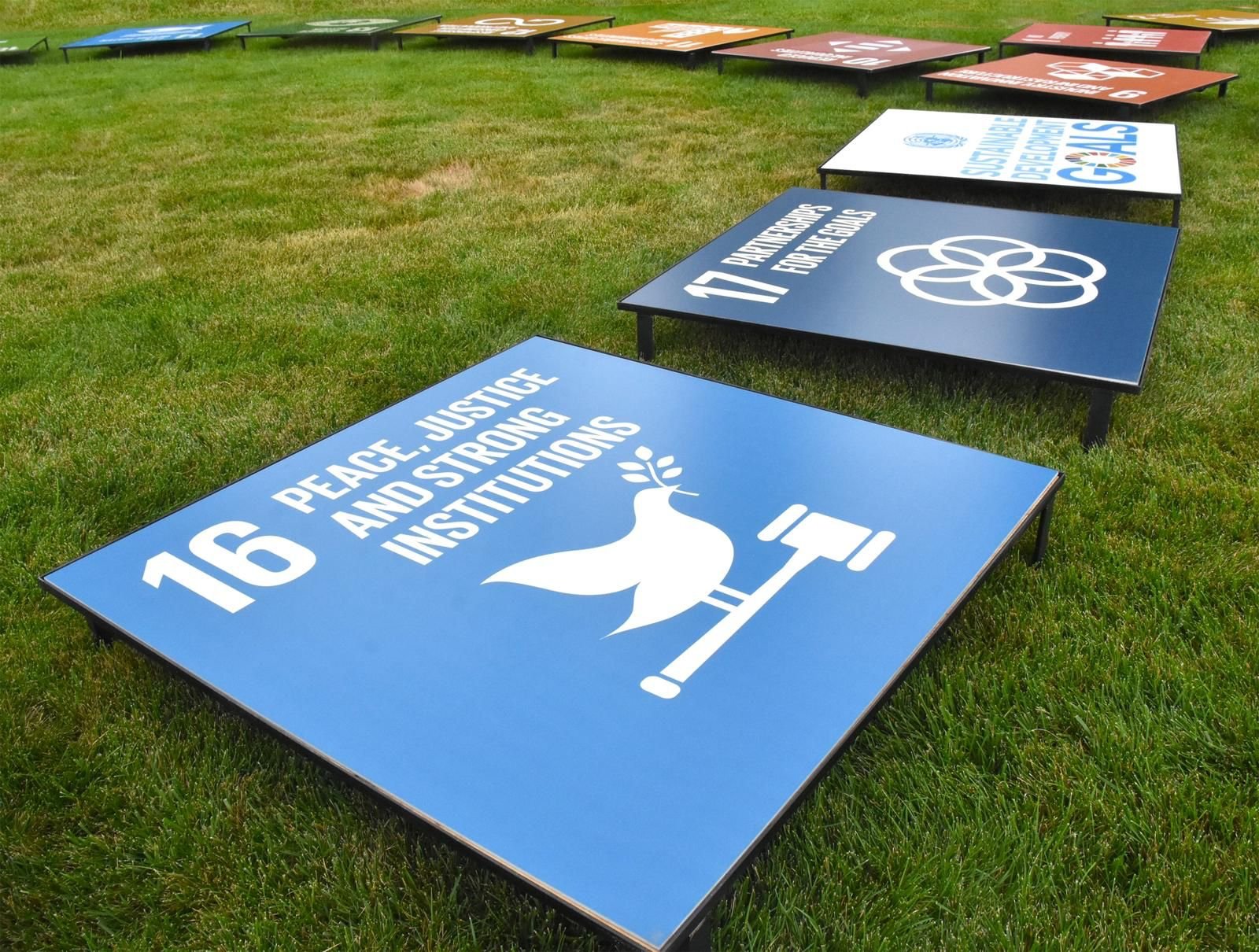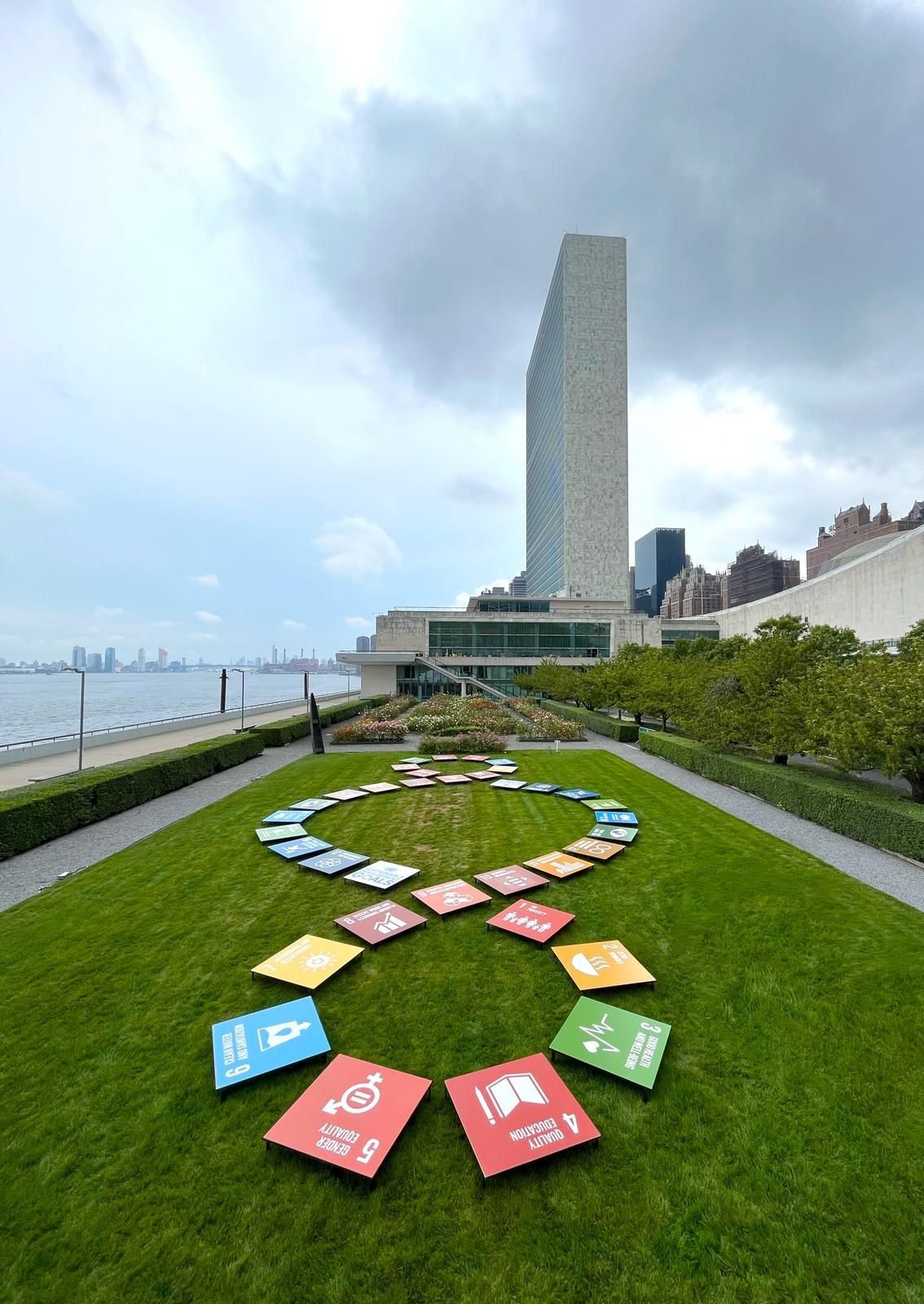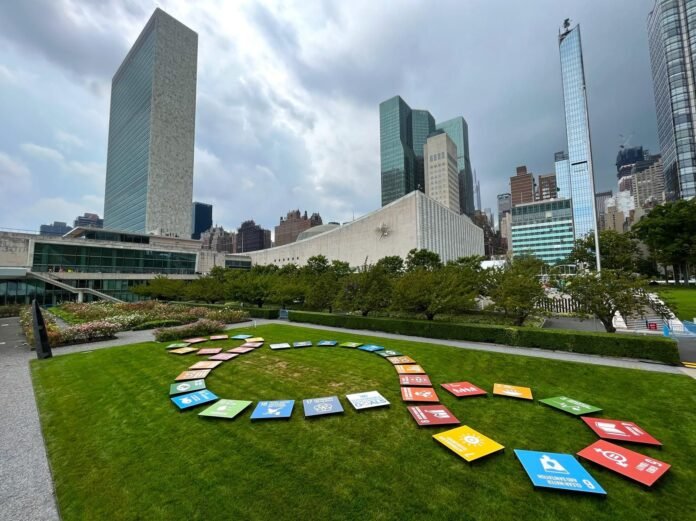NEW YORK, SEPTEMBER 13 – Italian artist Michelangelo Pistoletto will be present with a temporary exhibition of his Third Paradise at UN Headquarters in conjunction with the Mid-Term discussions of the 2030 Agenda. The site-specific artwork, on display until September 28 next to the Rose Garden, is a representation of the symbol created in 2003 by Pistoletto, adapted through the 17 Sustainable Development Goals of the 2030 Agenda.
The Third Paradise is a symbol of creation, balance between diversities, and sustainability. It is the fusion of the first and second Paradises: the first where humans were fully integrated with nature, the second developed by human intelligence, leading to the global dimensions achieved today with science and technology. The artwork consists of 36 porcelain stoneware tiles, each measuring 120 x 120 centimeters. The 17 sustainability goals are repeated twice. After goal 17, an additional tile is placed with the symbol of the SDGs for the 2030 Agenda.
 Sponsored by the Permanent Mission of Italy to the UN, the temporary installation was curated by the Alessia Panella Law Firm and Cittadellarte – Pistoletto Foundation, in collaboration with Magazzino Italian Art, Alex Fremura, Shipping Services Italia Srl SB, Riccardo Fuochi, and Federico Fuochi.
Sponsored by the Permanent Mission of Italy to the UN, the temporary installation was curated by the Alessia Panella Law Firm and Cittadellarte – Pistoletto Foundation, in collaboration with Magazzino Italian Art, Alex Fremura, Shipping Services Italia Srl SB, Riccardo Fuochi, and Federico Fuochi.
The Third Paradise dedicated to the 17 Sustainable Development Goals was created for the first and only time in 2018 during Michelangelo Pistoletto’s exhibition at the Palazzo Ducale in Mantua, curated by Peter Assmann, Fortunato D’Amico, and Sergio Pajola, entitled “From Cittadellarte to the civilization of art.”
The Third Paradise, as explained by the artist on his website, is a symbol of creation, balance between diversities, and sustainability. It is the fusion of the first and second paradises. The first is where humans were fully integrated with nature. The second is the artificial paradise which simultaneously generates irreversible processes of degradation and consumption of the natural world. The Third Paradise is the third phase of humanity, realized in the balanced connection between artifice and nature: a new stage of civilization, essential to ensure the survival of the human species.
 The symbol of the Third Paradise, a reconfiguration of the mathematical infinity sign, is composed of three consecutive circles. The two outer circles represent all diversities and antinomies, including nature and artifice. The central one is the interpenetration of opposing circles and represents the generative womb of the new humanity.
The symbol of the Third Paradise, a reconfiguration of the mathematical infinity sign, is composed of three consecutive circles. The two outer circles represent all diversities and antinomies, including nature and artifice. The central one is the interpenetration of opposing circles and represents the generative womb of the new humanity.
Pistoletto, born in Biella in 1933, is considered one of the pioneers and protagonists of Arte Povera with his “Objects in less” (1965-1966) and the famous “Venus of the Rags” (1967). In the 1990s, he founded Cittadellarte in Biella, bringing art into relation with various aspects of social fabric to inspire and produce a responsible transformation of society. He has received numerous international awards, including the Golden Lion for Lifetime Achievement at the Venice Biennale in 2003 and the Wolf Foundation Arts Award in 2007. In 2013, the Louvre in Paris dedicated a solo exhibition to him, the same year he received the Praemium Imperiale for painting. (@OnuItalia)

